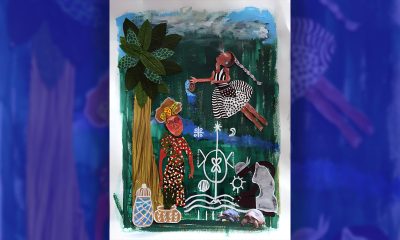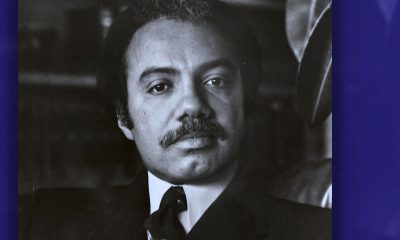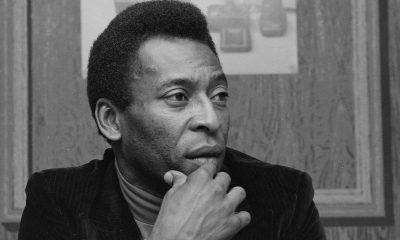World
Boko Haram Kidnaps Hundreds, Tells Stories of Chibok Girls

In this photo taken Saturday, Jan. 31, 2015. Dorcas Aiden, 20 years old, speaks to a journalist in Yola, Nigeria. Dorcas Aiden was another of the girls caught in Boko Haram’s siege. She had finished high school and was living at home when the war came to her village. Fighters took her to a house in the town of Gulak and held her captive for two weeks last September. The more than 50 teenage girls crammed into the house were beaten if they refused to study Quranic verses or conduct daily Muslim prayers, she says. When the fighters got angry, they shot their guns in the air. Aiden finally gave in and denied her Christian faith to become Muslim, at least in name, she says. (AP Photo/Lekan Oyekanmi)
CHIKA ODUAH, Associated Press
YOLA, Nigeria (AP) — When Islamic extremists snatched more than 270 girls from the Chibok boarding school in Nigeria in the dead of night, protests broke out worldwide. The U.S. pledged to help find them, and the #BringBackOurGirls hashtag was born.
Some 10 months later, most are still missing. The Boko Haram extremist group sees the mass kidnapping as a shining symbol of success, and has abducted hundreds of other girls, boys and women. The militants brag to their new captives about the surrender of the Chibok girls, their conversion to Islam and their marriage to fighters.
“They told me the Chibok girls have a new life where they learn to fight,” says Abigail John, 15, who was held by Boko Haram for more than four weeks before escaping. “They said we should be like them and accept Islam.”
The kidnappings reflect the growing ambition and brazenness of Boko Haram, which seeks to impose an Islamic state across Nigeria, Africa’s most populous country. Some 10,000 people have died in the Islamic uprising over the past year, compared to 2,000 in the previous four years, according to the U.S. Council on Foreign Relations.
“It’s devastating,” said Bukky Shonibare, an activist in Abuja, of the kidnappings. “It makes you wonder, what is being done?”
John was among three girls interviewed by The Associated Press who recently escaped from Boko Haram. While their stories could not be independently verified, they were strikingly similar, and all spoke of their captors’ obsession with the Chibok girls.
The girls had no idea whether the militants were telling the truth or making up stories to taunt their victims. John says the fighters enjoyed relating how they had whipped and slapped the Chibok girls until they submitted.
When the Nigerian air force dropped a bomb on the house where John was confined, she tried to escape, she says. She wrestled with the fighters, but they broke her am and hauled her off to another house.
At the end of last year, the Nigerian army liberated the town where she was held. She is now in Yola with her father, sister and six brothers, in a house overcrowded with refugees. She finally was able to get medical attention for her fractured right arm, which remains in a cast.
The kidnappings of the Chibok girls in April brought Boko Haram to the world’s attention in a way the group could not have imagined. The hashtag #BringBackOurGirls was tweeted more than 480,000 times globally in early May, and U.S. first lady Michelle Obama held it up in a sign to television cameras. She said at the time, “In these girls, Barack and I see our own daughters …we can only imagine the anguish their parents are feeling right now.”
Yet in the 10 months since, Boko Haram has increased the tempo and ferocity of its insurgency. In August, it began seizing and holding towns, and — copying the Islamic State group — declared it would recreate an ancient Islamic caliphate in the region. The fighting has since spilled across Nigeria’s borders, and the African Union this month authorized a multinational force of 8,750 troops to try to stamp it out.
Dorcas Aiden, 20, was another of those caught in Boko Haram’s siege. She had finished high school and was living at home when the war came to her village. Fighters took her to a house in the town of Gulak and held her captive for two weeks last September.
The more than 50 teenage girls crammed into the house were beaten if they refused to study Quranic verses or conduct daily Muslim prayers, she says. When the fighters got angry, they shot their guns in the air. Aiden finally gave in and denied her Christian faith to become Muslim, at least in name, she says.
One day, the fighters stormed into the room where she was kept locked up with a dozen other girls. They showed a video of the Chibok girls, dressed in hijabs, with only their faces visible through their veils. Aiden says she was so overwhelmed that she cried.
The fighters said the Chibok girls were all Muslims now, and some were training as fighters to fight women, which Boko Haram men are not supposed to do.
Aiden’s captors boasted about how they had married off the Chibok girls, she says. One fighter said he would marry her. She balked.
“I said, ‘No, I will not marry you,'” Aiden recounts. “So he pulled out a gun and beat my hand.”
Aiden says the insurgents threatened to break the legs of any girl who tried to escape, but she and six others ran anyway. As she made her way through abandoned farm fields, she noticed that Boko Haram had filled about 10 other houses with kidnapped girls and women.
Aiden, who is now in Yola with tens of thousands of other refugees, dreams of going to university, in defiance of the extremists’ insistence that girls should be married, not educated. The nickname Boko Haram means “Western education is forbidden or sinful.”
Another escapee, a shy 16-year-old captured in September, begs that her name not be published because she escaped only a few weeks ago and believes the fighters are actively searching for her. After the girl’s village was attacked four times, she fled to a great-aunt. Then that village also was targeted, she says.
The fighters held her for four months. When she escaped, she walked through the bush and across the border into Cameroon to avoid areas under Boko Haram’s control. She is now taking refuge in a Catholic church in Yola.
All the girls say they were not raped, despite the fears of some villagers. Instead, the fighters said they wanted the girls to remain virgins until they were married off.
“They said they are doing the work of God, so they will not touch us,” the 16-year-old recounts.
As she tells her story, she fidgets and looks down at her hands, clasped in her lap. She recounts how one fighter, nicknamed “Tall Arab,” was set on marrying her. She pleaded that she was too young, but was told, “Do you think you are better than those Chibok girls that we kidnapped?”
The man told her the Chibok girls were “enjoying their matrimonial homes,” she remembers. He also said the Chibok girls had turned against their parents, and were “ready to slit their parents’ throats” if they ever saw them again.
Some never will. Even if the girls are released, people in Chibok say at least 13 of their parents have died since they were seized, in Boko Haram violence or possibly stress-related illness.
While dozens of Chibok girls escaped on their own after their kidnapping, 219 are still missing. Nigeria’s military initially feared any action could lead to the girls being killed. But villagers reported last week that air force jets have begun bombing the Sambisa Forest — the area where fighters told Aiden some girls still are held captive.
__
AP writer Michelle Faul contributed to this story from Dakar, Senegal.
Copyright 2015 The Associated Press. All rights reserved. This material may not be published, broadcast, rewritten or redistributed.
Barbara Lee
Congresswoman Barbara Lee Issues Statement on Deaths of Humanitarian Aid Volunteers in Gaza
On April 2, a day after an Israeli airstrike erroneously killed seven employees of World Central Kitchen (WCK), a humanitarian organization delivering aid in the Gaza Strip, a statement was release by Rep. Barbara Lee (D-CA-12). “This is a devastating and avoidable tragedy. My prayers go to the families and loved ones of the selfless members of the World Central Kitchen team whose lives were lost,” said Lee.

By California Black Media
On April 2, a day after an Israeli airstrike erroneously killed seven employees of World Central Kitchen (WCK), a humanitarian organization delivering aid in the Gaza Strip, a statement was release by Rep. Barbara Lee (D-CA-12).
“This is a devastating and avoidable tragedy. My prayers go to the families and loved ones of the selfless members of the World Central Kitchen team whose lives were lost,” said Lee.
The same day, it was confirmed by the organization that the humanitarian aid volunteers were killed in a strike carried out by Israel Defense Forces (IDF). Prior to the incident, members of the team had been travelling in two armored vehicles marked with the WCF logo and they had been coordinating their movements with the IDF. The group had successfully delivered 10 tons of humanitarian food in a deconflicted zone when its convoy was struck.
“This is not only an attack against WCK. This is an attack on humanitarian organizations showing up in the direst situations where food is being used as a weapon of war. This is unforgivable,” said Erin Gore, chief executive officer of World Central Kitchen.
The seven victims included a U.S. citizen as well as others from Australia, Poland, the United Kingdom, Canada, and Palestine.
Lee has been a vocal advocate for a ceasefire in Gaza and has supported actions by President Joe Biden to airdrop humanitarian aid in the area.
“Far too many civilians have lost their lives as a result of Benjamin Netanyahu’s reprehensible military offensive. The U.S. must join with our allies and demand an immediate, permanent ceasefire – it’s long overdue,” Lee said.
Bay Area
Nigerian Bank Chief Killed in Helicopter Crash on Way to Superbowl XVIII
According to the San Bernardino County Sheriff’s Dept., the crash occurred near Nipton, on the edge of the Mojave Desert Preserve. The poor weather conditions — rain, wind and snow showers—may have contributed to the accident, although the investigation is not complete. All six aboard were killed. Herbert Wigwe, 57, founded Access Bank in 1989, and it became the country’s largest competitor, Diamond Bank in 2018.
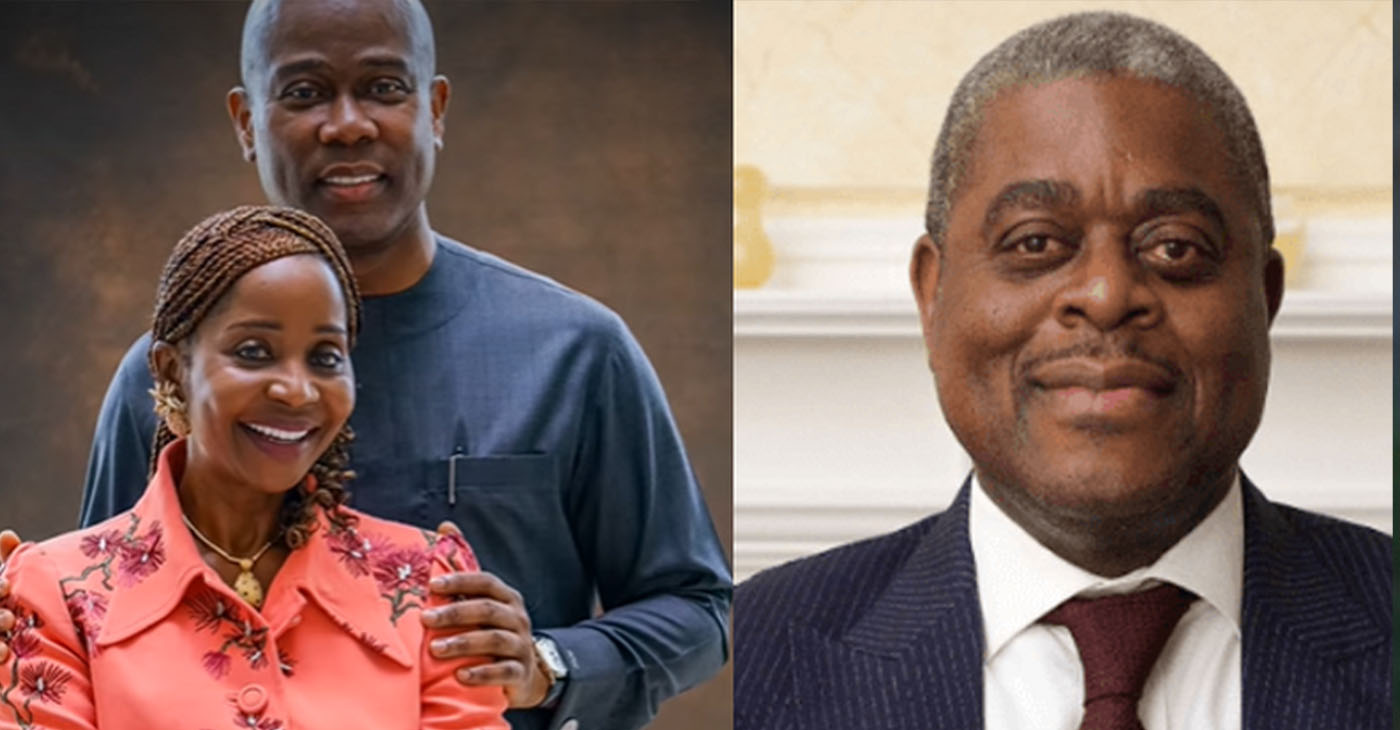
By Post Staff
The co-founder of one of Nigeria’s largest banks died with his wife, son and three others when the helicopter transporting them from Palm Springs, Ca., to Boulder City, Nev. to attend the fifty-eighth SuperBowl at the stadium outside Las Vegas crashed on Feb. 9.
According to the San Bernardino County Sheriff’s Dept., the crash occurred near Nipton, on the edge of the Mojave Desert Preserve. The poor weather conditions — rain, wind and snow showers—may have contributed to the accident, although the investigation is not complete. All six aboard were killed
Herbert Wigwe, 57, founded Access Bank in 1989, and it became the country’s largest competitor, Diamond Bank in 2018.
More recently, Wigwe was planning to open a banking service in Asia this year after making successful expansions to other parts of Africa, including South Africa, Kenya, and Botswana.
Nigerian President Bola Tinubu described Wigwe’s death as an ‘overwhelming tragedy.”
Oakland resident and Nigerian immigrant Kayode Gbadebo agrees with Tinubu. He met Wigwe in Nigeria but crossed paths with him in London in 2006. Wigwe, he said, “took risks.”
He was young and people thought he couldn’t do what he intended, which was not so much about money but community.
“He was more like Jesus in washing the feet of the poor– Wigwe was culturizing community,” Gbadebo said.
“There will never be another like him. This is a deep, deep loss” and he hopes everyone will eventually “be comforted.”
He was also disappointed that a replacement has already been named even before Wigwe is buried. “It is not reasonable. You don’t want a vacuum, but it’s” not fair to the family, Gbadebo observed.
Wigwe had also been working to solve the migration issues from African countries, believing that “investing in higher education was key to controlling mass migration, which “is destabilising countries across the world,” BBC News reported.
“We need to take a holistic approach to address global migration, starting with our traditional framework for international development,” Wigwe wrote.
To that end, according to BBC News, Wigwe was preparing to open Wigwe University in Niger, where he was from.
“The best place to limit migration is not in the middle of the Mediterranean or the English Channel or the Rio Grande. It is in the home countries that so many migrants are so desperate to leave,” he wrote, saying his university was an opportunity for him “to give back to society.”
Besides Wigwe and his wife, Chizoba Nwuba Wigwe, and one son, two crew members and Bimbo Ogunbanjo, former group chairman of the Nigerian Exchange Group Plc, were also killed in the crash.
According to Wikipedia, three other children survive Wigwe.
In his statement reported in People magazine, Tinubu described Wigwe as “a distinguished banker, humanitarian, and entrepreneur.”
“I pray for the peaceful repose of the departed and ask God Almighty to comfort the multitude of Nigerians who are grieving and the families of the deceased at this deeply agonizing moment,” the president said.
He added, “Their passing is an overwhelming tragedy that is shocking beyond comprehension.”
Besides feeling the tremendous loss, Gbadebo fears the disorder and greed that will follow. “It’s a mess,” he said.
People magazine, BBC News and Wikipedia were the sources for this report.
Activism
No Valid Reason for Failing to Condemn Hamas’ Act of Terrorism
On Oct. 7, 2023, Hamas terrorists crossed the Israel-Gaza border and indiscriminately slaughtered Israeli civilians in their homes. They killed nearly 300 young people at a music festival and took at least 200 hostages including 30 children. The atrocities they committed included massacres of families, abduction of the elderly and children, burning of babies and rapes of women.
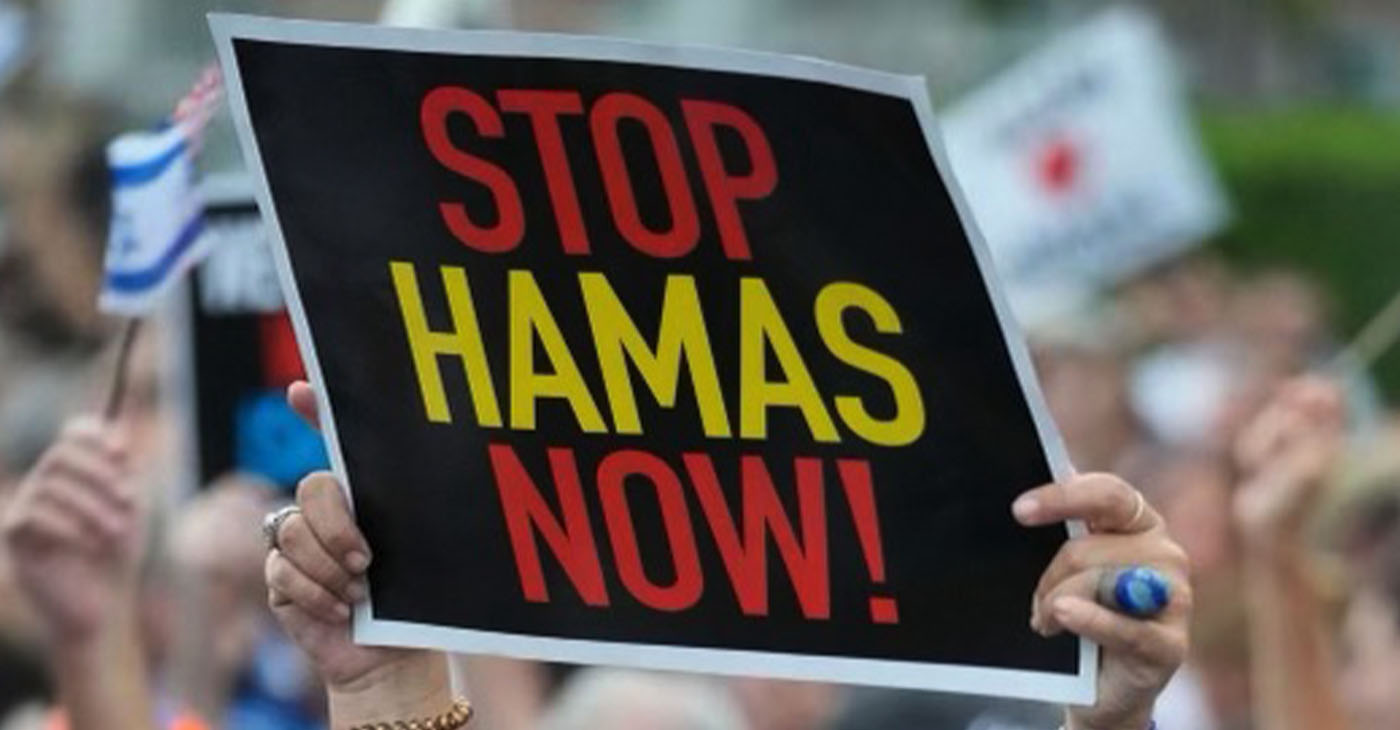
By Joe W. Bowers Jr.
California Black Media
OPINION
On Oct. 7, 2023, Hamas terrorists crossed the Israel-Gaza border and indiscriminately slaughtered Israeli civilians in their homes.
They killed nearly 300 young people at a music festival and took at least 200 hostages including 30 children. The atrocities they committed included massacres of families, abduction of the elderly and children, burning of babies and rapes of women.
The horrific surprise attack deserves universal and unequivocal condemnation. President Joe Biden called what Hamas did “an act of sheer evil” and pledged to defend the lives of Israelis and Jewish Americans.
He said, “Let there be no doubt. The United States has Israel’s back. We’ll make sure the Jewish and democratic state of Israel can defend itself today, tomorrow, as we always have.”
Hamas killed approximately 1,400 people including 32 Americans. Citizens from 40 different countries including the United Kingdom, France, Mexico, and Thailand were killed or reported missing.
Hamas fighters breached Israel’s border defenses on the final day of Sukkot while soldiers were away due to the holiday and launched attacks on 22 towns outside the Gaza Strip. This security lapse has been described as a catastrophic failure of Israel’s intelligence agencies..
Hamas is an extremist Islamist militant organization that has governed the Gaza Strip since 2007. It is recognized as an Iranian-backed terrorist group by the U.S. and the European Union and has a long history of violence against Jews and Palestinians, the latter of whom they often use as human shields.
While there have been plenty of groups who have unequivocally condemned the massacres, there are a number who haven’t, including organizations such as the Democratic Socialists of America (DSA), Black Alliance for Peace, Red Nation, and independent Black Lives Matter (BLM) chapters (excluding the national Black Lives Matter Global Network Foundation).
The DSA San Francisco chapter put out a statement on Oct. 9 that said, “Socialists support the Palestinian people’s, and all people’s, right to resist and fight for their own liberation. This weekend’s events are no different.”
Student organizations at a number of universities and colleges in California signed a solidarity statement titled “Resistance Uprising in Gaza” from Students for Justice in Palestine (SJP). The statement attributes the violence of the Hamas attack to what it refers to as Israeli apartheid and occupation.
The SJP statement written by Bears for Palestine at UC Berkeley says, “We support the resistance, we support the liberation movement, and we indisputably support the Uprising.” Essentially, these students are indirectly associating themselves with Hamas’ barbaric acts under the guise of “resistance.”
Signing the statement were 51 student organizations including those from Stanford, UC Berkeley, UCLA, UC Davis, UC San Diego, CSU Sacramento, and USC.
A statement signed by 34 Harvard student organizations said, “We, the undersigned student organizations, hold the Israeli regime entirely responsible for all unfolding violence.”
Many university leaders, where these students are enrolled, have been guilty of failing to unequivocally condemn Hamas and for inadequately addressing their students’ expressed support for Hamas.
Several Stanford faculty members, including three Nobel laureates, condemned Stanford’s administrators’ weak response to acts of terrorism and the expression of pro-Hamas sentiments by students on campus.
Israel unilaterally withdrew from Gaza in 2005. It dismantled 21 Israeli settlements in the territory and handed them over to the Palestinian Authority.
The assault by Hamas on Oct. 7 was not an ordinary clash with Israel. Hamas’ actions resulted in the deadliest single day for Jews since the Holocaust.
While there are valid reasons for protesting Israel’s treatment of Palestinians and a real reckoning with the Israeli government on its policies is long overdue, nothing justifies Hamas’ attack.
Israelis who were killed largely had nothing to do with the conditions of Palestinians in Gaza. Some of the victims weren’t even Israeli — they were just tourists.
The students blaming Israel for the atrocities committed by Hamas have faced criticism. Some groups have withdrawn their endorsements because of the backlash aimed at them. Others have doubled down on their activism. SJP held a “National Day of Resistance” on several campuses.
Several CEOs have asked Harvard to disclose a list of members from the organizations assigning responsibility to Israel to insure they do not hire any of their members. A Berkeley law professor has also urged firms not to hire his students who have publicly blamed Israel for the war.
This California Black Media report was supported in whole or in part by funding provided by the State of California, administered by the California State Library.
-

 Activism4 weeks ago
Activism4 weeks agoOakland Post: Week of March 20 – 26, 2024
-

 #NNPA BlackPress3 weeks ago
#NNPA BlackPress3 weeks agoCOMMENTARY: D.C. Crime Bill Fails to Address Root Causes of Violence and Incarceration
-

 #NNPA BlackPress3 weeks ago
#NNPA BlackPress3 weeks agoMayor, City Council President React to May 31 Closing of Birmingham-Southern College
-

 #NNPA BlackPress3 weeks ago
#NNPA BlackPress3 weeks agoCOMMENTARY: Lady Day and The Lights!
-

 #NNPA BlackPress3 weeks ago
#NNPA BlackPress3 weeks agoFrom Raids to Revelations: The Dark Turn in Sean ‘Diddy’ Combs’ Saga
-

 #NNPA BlackPress3 weeks ago
#NNPA BlackPress3 weeks agoBaltimore Key Bridge Catastrophe: A City’s Heartbreak and a Nation’s Alarm
-

 #NNPA BlackPress3 weeks ago
#NNPA BlackPress3 weeks agoBaltimore’s Key Bridge Struck by Ship, Collapses into Water
-

 Activism3 weeks ago
Activism3 weeks agoOakland Post: Week of March 27 – April 2, 2024





